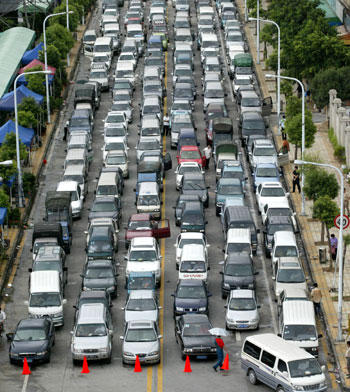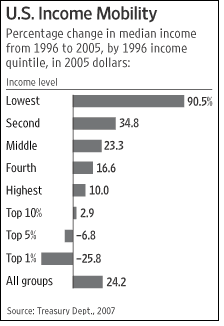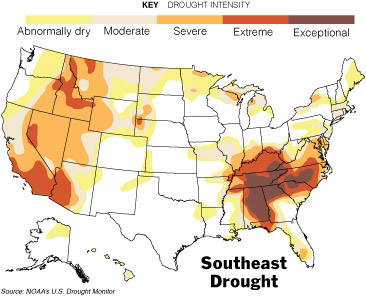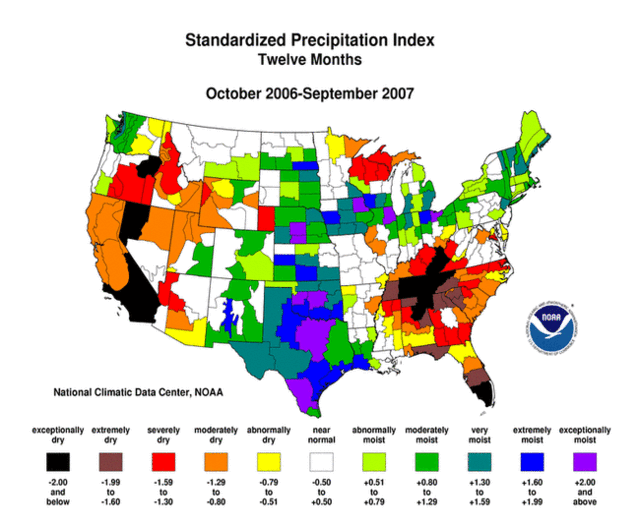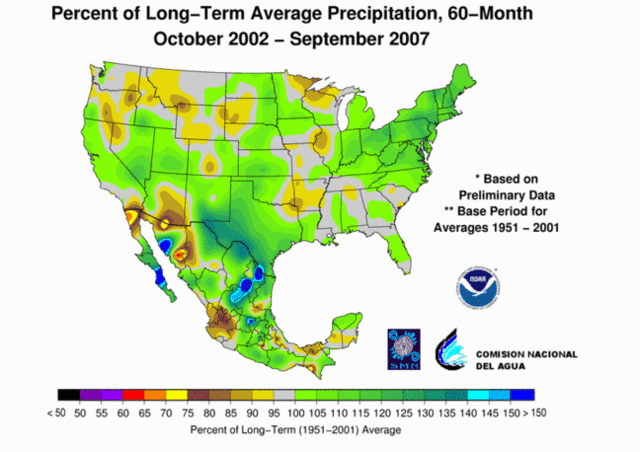It is always amazing how big round numbers hold the media in thrall. Last week we saw the inevitable spate of articles about oil crossing the $100 mark, if only for a few minutes of trading (actually, the more interesting milestone was somewhere back in the low $90 range when we exceeded the highest past price for oil in inflation-adjusted dollars).
I don't get hugely worked up about gradual commodity price changes. Oil price increases are signals, signaling marginal consumers to use less and suppliers with historically marginal sources and substitutes to consider their development. Also, our economic dependence on oil per dollar of GDP has declined, meaning that $100 oil has less impact on the economy than, say, it would have 20 years ago:
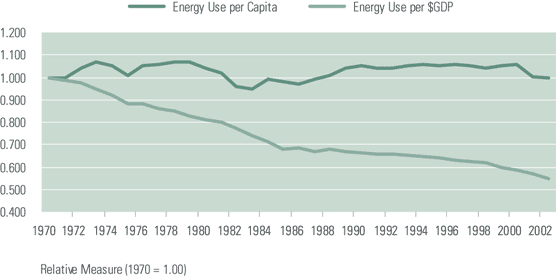
I would certainly prefer lower oil prices, and my business suffers to some extent when gas prices rise, but it is not a disaster (it is interesting that higher oil prices are considered bad in the media, while lower home prices are considered bad in the media). I know from past experience in the oil patch that oil price bubbles are often followed by oil price drops. The high oil prices of the seventies were followed by rock-bottom oil prices in the eighties, and subsequent recession in the oil patch (causing the housing bust I discussed here).
Also, given how we got to these higher oil prices, I tend to take them as good news. Oil prices are not rising due to some drop off in supply. Instead, they are rising because of a strong global economy, in particular with millions of people entering the middle class in Asia. This is GOOD news.
I have written on peak oil a bunch, so I won't get into it again. Oil production at worst is going to flatten out for a long time, meaning we will have a steady rise in oil prices over time as the economy grows. If you want a third party evaluation of peak oil theory, go ask climate catastrophists who believe that CO2 production is an impending disaster for the economy. These guys know that there are lots of unproduced hydrocarbons out there, and it terrifies them. Al Gore and James Hansen were running around last week trying to close off Canadian tar sands from development.
Finally, after this series of random thoughts, one more interesting take on this via Megan McArdle: $100 oil was a stunt
Some observers questioned the validity of the price mark when it
emerged that the peak was the result of a trader "“ one of the "locals"
who trade on their own money "“ buying from a colleague just 1,000
barrels of crude, the minimum allowed, industry insiders said. The deal
on the floor of the New York Mercantile Exchange was at a hefty premium
to prevailing prices.
Insiders named the trader as Richard Arens, who runs a brokerage
called ABS. He was not available for comment. Analysts said he may have
been testing the ceiling of the crude price, but the premium he paid
surprised the market.
Before the $100-a-barrel trade, oil prices on Globex were at $99.53
a barrel. Immediately after the trade, prices went down to about
$99.40, suggesting a trading loss of $600 for Mr Arens.
Stephen Schork, a former Nymex floor trader and editor of the
oil-market Schork Report, commented: "A local trader just spent about
$600 in a trading loss to buy the right to tell his grandchildren he
was the one who did it. Probably he is framing right now the print
reflecting the trade."

